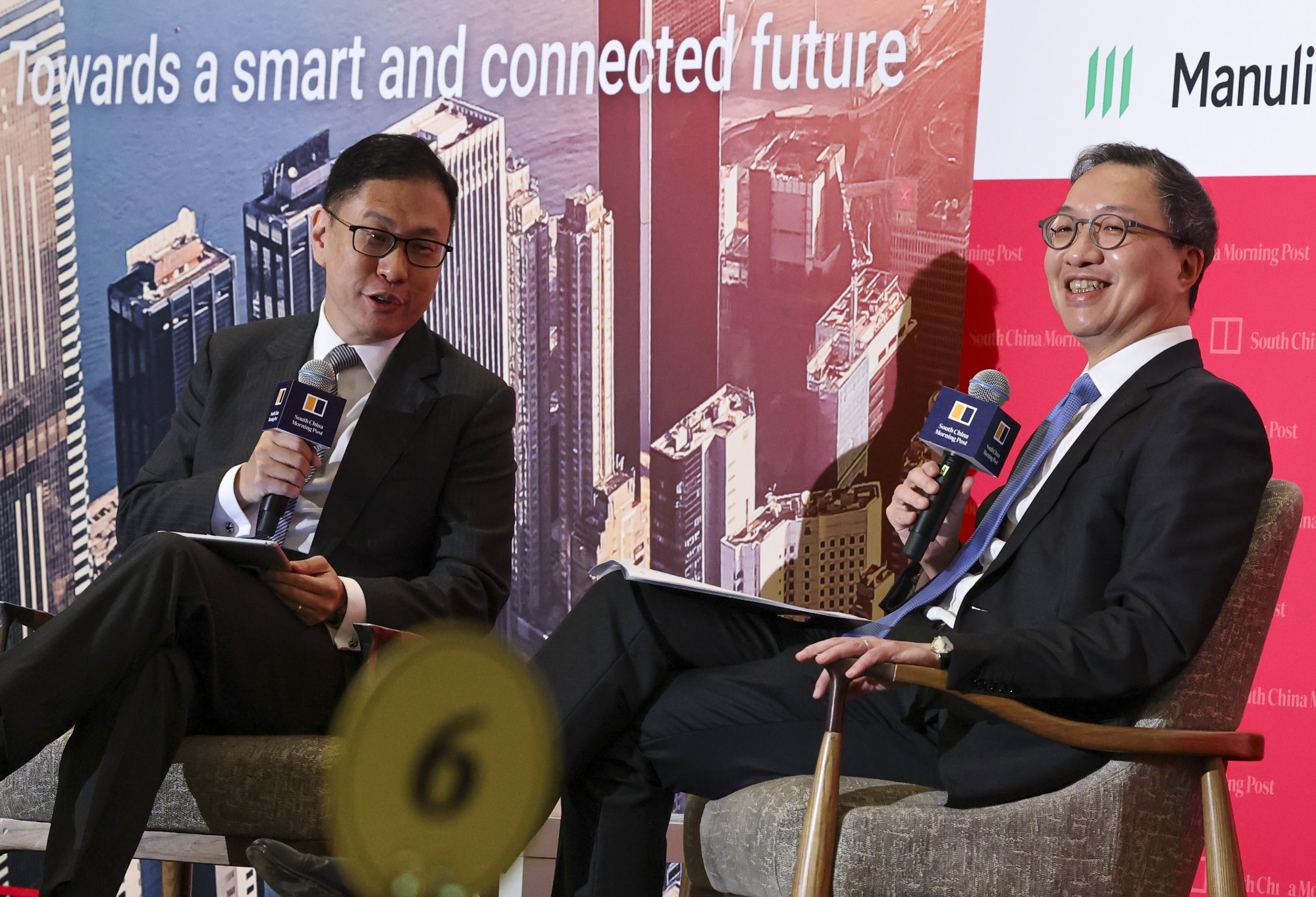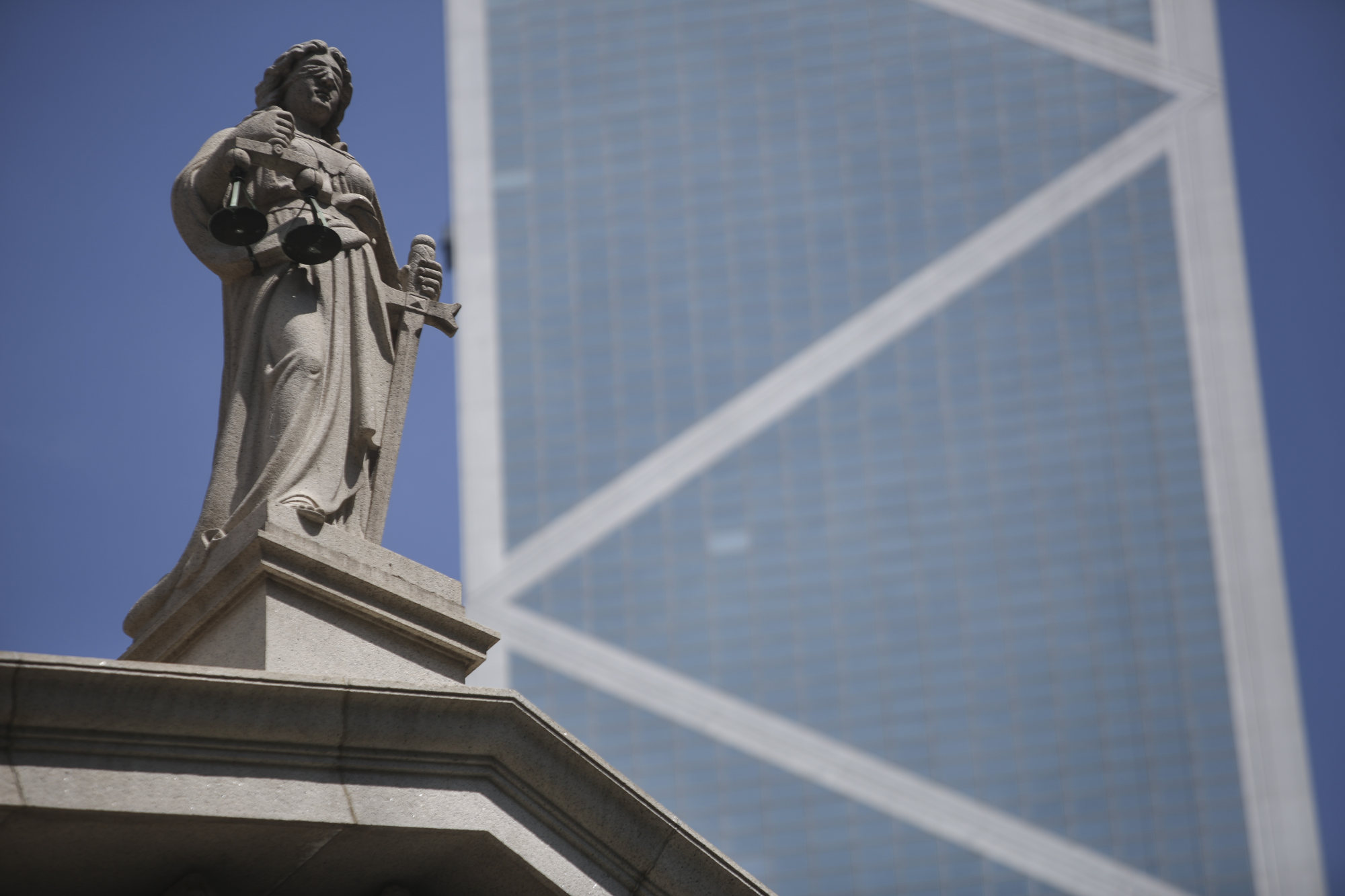
Hongkongers free to speak up about application to ban protest song ‘Glory to Hong Kong’, justice minister Paul Lam tells Post forum
- Secretary for Justice Paul Lam invites those who disagree with ban to come forward and present arguments during hearing scheduled for July 21
- Lam issues reassurance in response to question by Bar Association chairman Victor Dawes during keynote discussion at Post’s China Conference: Hong Kong 2023
Hongkongers are welcome to speak up about a government application to outlaw a popular protest song, the justice minister has said, issuing a reassurance that the proposed ban will have a narrow focus and not affect ordinary residents.
Secretary for Justice Paul Lam Ting-kwok on Tuesday said the application for an injunction to ban “Glory to Hong Kong” – regarded as the unofficial anthem of the 2019 anti-government protests – only targeted specific actions.
“We are seeking to restrain very specific types of activities which may well constitute criminal offences already. So those sorts of activities are not matters that ordinary people would be interested in doing, and not something that they had been doing,” Lam said.
“I do not see why ordinary law-abiding citizens should be worried or concerned.”

Lam also addressed the recent “judicial copying” saga involving national security judge Wilson Chan Ka-shun, noting it showed the city’s courts were reliable and had upheld a core value of the common law system that justice must be seen to be done.
He said the rule of law remained a unique strength of the city and was its “gold-lettered signboard”, referring to a Cantonese phrase which describes something prestigious and grand.
The government is seeking to ban all forms of the song and its derivatives, sparking concerns about freedoms of expression and speech.
The court ban, if granted, would prevent people with a secessionist or seditious intent, or with the intent to violate the national anthem law from “broadcasting, performing, printing, publishing, selling, offering for sale, distributing, disseminating, displaying or reproducing” the song, including on the internet.
Hong Kong protest song back on platforms, as creator vows to defend freedoms
The proposed ban came after organisers of several overseas sports events had wrongly played the protest tune instead of Chinese national anthem “March of the Volunteers”. Most of the errors stemmed from top search results on Google for “Hong Kong national anthem”.
The Hong Kong government has asked Google to ban the song from the search engine but to no avail. Instead, the move appears to have generated more interest in the song, leading to a spike in digital downloads.
The song vanished from a number of leading music-streaming services, including Apple Music and Spotify amid the government’s legal challenge. However, it returned to some platforms – including Spotify and KKBox – on Monday as a “2023 edition”, with eight renditions available. The song’s creator and distributor also spoke out, vowing to defend freedoms.
The song was once again available on Apple Music on Tuesday, as the “2023 edition”, quickly topping the local album charts.

The song, which has always been accessible on Google’s YouTube, remains unavailable on music-streaming platform Moov.
Lam on Tuesday said the government’s application was targeting a specific song because it had been misused as China’s national anthem and used to promote Hong Kong independence.
“As a matter of principle, it is wholly unacceptable,” he said.
While he stressed that he would not comment on the case once it was being dealt with by the courts, he invited those who disagreed with the ban to come forward and present their arguments during the hearing scheduled for July 21.
Last week, authorities publicised a writ of summons and other documents related to the proposed ban ahead of the hearing and invited anyone who objected to the application to obtain the relevant material from Wan Chai Police Station and file their opposition in writing.
Hong Kong court postpones hearing on government’s bid to ban protest song
“The purpose is to invite parties who are interested, including those who disagree with the government application, to come forward and take part in the legal proceedings,” said Lam during the 30-minute session at the forum.
“So they’re given the chance, they’re given the right to be heard, if they disagree. Perhaps I would invite them to meet us [on July 21] so that we can set out our respective arguments before the judge and let the judge decide.”
Lam also waded into a recent saga where High Court judge Mr Justice Wilson Chan Ka-shun, who is designated to hear national security cases, handed down a judgment in a trademark lawsuit in which he was found to have copied 98 per cent of the plaintiff’s submissions. Chan received a “serious reprimand” from the chief justice over the 2021 incident and the Court of Appeal ordered a retrial of the case.
Lam said it was an “unfortunate incident” but called on critics to look at the matter “in context” or from a “slightly different perspective”.
He said the courts delivered a large number of judgments every year, adding: “We should not assume this isolated incident represents any sort of general practice.”
Hong Kong a ‘value-added super-connector’, firmly back on global stage: John Lee
“Such mistake had been committed by some judges in other jurisdictions,” he said. “Judges are human beings and they sometimes make mistakes of all sorts. In testing whether a judicial system is reliable, I think the question is whether there is an effective and open system to enable any sort of mistakes made by judges to be corrected.”
He explained the appellate court had found the issue was a matter of perception, rather than determining whether a judge’s conclusion was right or wrong.
“When a judge substantially copies a party’s submission, there are bound to be question marks as to whether the judge has given any independent thinking to the party’s submission,” Lam said.
“The Court of Appeal’s decision actually demonstrated that we do insist on a very important principle of our common law. That is, justice must be seen to be done. It is a very good illustration of our insistence on some fundamental core values of our legal system.”
Lam also reiterated the city had a unique position to become an arbitration centre as more businesses were seeking to explore the Chinese market. He said Hong Kong had adopted the common law system and its legal professionals had a strong understanding of working in China.

